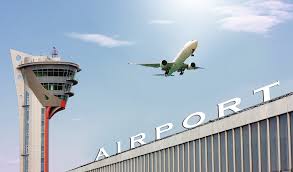After the nation’s top airlines feared the service would interfere with aircraft equipment and create extensive flight interruptions, AT&T and Verizon have postponed the introduction of a new wireless service near important airports.
The firms made their decision on Tuesday after the Biden administration intervened to try to reach an agreement between telecommunications and airlines over the launch of the new 5G technology.
The businesses said they’ll start offering 5G, or fifth-generation, service on Wednesday, although they’ll put off turning on 5G cell towers within a 2-mile radius of federally designated runways. They did not specify how long the towers would be idle.
AT&T and Verizon’s decision, according to President Joe Biden, “would avoid potentially disastrous interruptions to passenger travel, cargo operations, and our economic recovery, while allowing more than 90% of wireless tower deployment to go as planned.” He stated that the administration will continue to work on a long-term solution.
Despite the telecommunications providers’ capitulation, federal officials warned that some cancellations and delays could occur due to equipment constraints on specific planes. Delta Air Lines also stated that airport limits imposed by authorities last week, when the 5G deployment appeared to be on track, could present complications with flights flying in inclement weather.
The new high-speed wireless service employs a radio spectrum section that is similar to that used by altimeters, which are devices that measure the height of planes above the ground. Altimeters are used to assist pilots in landing when visibility is poor, and they are connected to other plane systems.
AT&T and Verizon claim that their equipment will not interfere with airplane avionics and that the technology is already in use in 40 other countries without incident.
According to the CEOs of ten passenger and freight airlines, including American, Delta, United, and Southwest, 5G will be more disruptive than previously imagined. Because the Federal Aviation Administration announced last week that dozens of large airports would be subject to flying limitations if 5G service was delivered nearby, this is the case. These restrictions would not be confined to times when visibility is low, according to the CEOs.
“Unless our major hubs are cleared to fly, the great majority of travelers and shippers would be effectively stranded.” In a letter to federal officials on Monday, the CEOs stated that “on a day like yesterday, more than 1,100 flights and 100,000 passengers would be vulnerable to cancellations, diversions, or delays.” “To put it bluntly, the country’s commerce will come to a halt.”
The fight between the airline and telecom industries and their rival regulators — the Federal Aviation Administration and the Federal Communications Commission, which oversees radio spectrum — threatened to further disrupt the aviation industry, which has been hit hard by the pandemic for nearly two years.
This was a problem that had been building for years.
The airlines and the FAA claim that they tried to alert the FCC about potential 5G C-Band interference, but that they were disregarded.
Telecoms, the FCC, and its allies contend that C-Band and airplane altimeters are separated enough on the radio spectrum to avoid interference. They also claim that the aviation industry has been aware of C-Band technology for several years but has done little to prepare – airlines have chosen not to upgrade altimeters that may be affected by interference, and the FAA has only recently begun assessing aircraft equipment.
Randall Berry, a Northwestern University professor of electrical and computer engineering, compared the problem to two stations on the radio dial overlapping. “For some (altimeters), the FCC-determined separation may be enough,” he noted, “but not for others.”
One answer, according to Berry, is to equip all altimeters with good anti-interference filters; however, there may be a struggle over who pays for the job – airlines or telecom firms.
Following rival T-acquisition Mobile’s of Sprint, AT&T and Verizon spent tens of billions of dollars in a government auction run by the FCC to secure C-Band spectrum to meet their own mid-band requirements, then spent billions more to build out new networks that they planned to launch in early December.
However, in response to the airlines’ concerns, they agreed to postpone the service until early January.
Transportation Secretary Pete Buttigieg and FAA Administrator Stephen Dickson requested the firms for another postponement late on New Year’s Eve, citing “intolerable interruption” to aviation service as a reason.
In a critical, even contemptuous tone, AT&T CEO John Stankey and Verizon CEO Hans Vestberg rejected the idea in a letter. However, after an intervention that reached the White House, they had second thoughts. The CEOs agreed to a second, shorter postponement, but signaled that no further concessions would be made.
In that agreement, the telecommunications companies agreed to decrease the power of their networks near 50 airports for six months, akin to France’s wireless restrictions. In exchange, the FAA and the Department of Transportation agreed not to oppose the deployment of 5G C-Band.
Although Biden applauded the accord, the airlines were dissatisfied with it, seeing it as a win for the telecommunications that did not fully address their concerns.

















